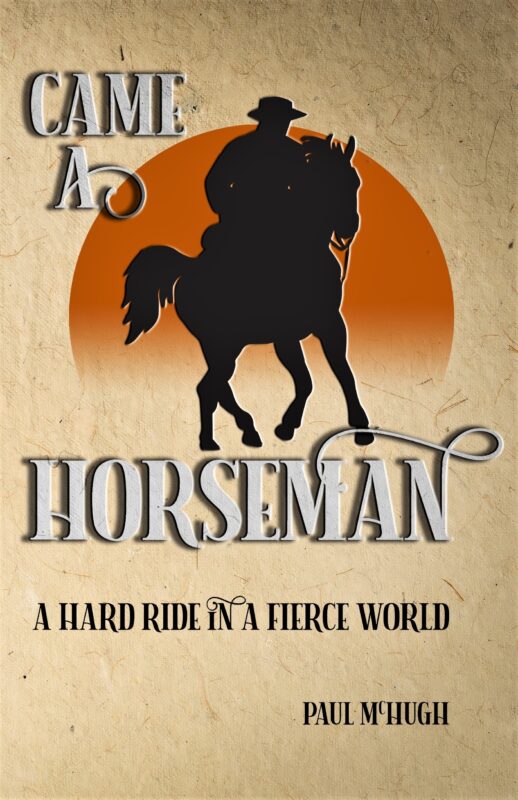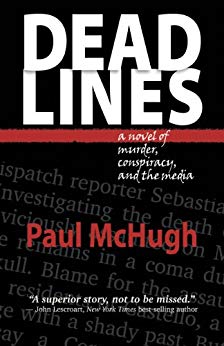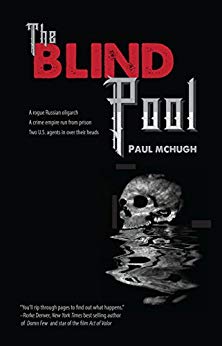
The main thing those two crazy kids in Verona just absolutely had to have was a fair chance to find true love. But they got stymied by their crude, violent, chaotic city. Verona seems, “A town without pity…” as an ol’ American pop tune spins it.
Shakespeare painted Verona as a claustrophobic arena awash in the durable hatreds and feuds of battling clans. (Sort of like the USA now, except Verona’s “liberals and conservatives” stalked their lanes armed with daggers, rapiers, and far more eloquent insults.)

Amid such a scenario, was locating a small, peaceful nook for their love to blossom too much for Romeo and Juliet to ask? Yes, apparently. And therein lies their tragedy.
Shakespeare’s texts are famously layered and dense. Various themes can be chased through his material. You enjoy a boatload of choices for charting your course. Go this way, you get cod. That way, salmon. Plunge along a dark, strange route and perhaps you’ll encounter a pod of breaching Calibans…
Any decent conceptual line pursued through the maestro’s plays tends to yield corroborating data. This process strongly resembles Robert Anton Wilson’s “Law of Fives.” Reduced to its simplest form, that law goes: “The more fives you look for, the more you will see.”
‘FREE WILL’ AIN’T THAT, EXACTLY
I recently went sailing through “Romeo & Juliet.” My aim was to suss out some clues about Shakespeare’s notion of agency. You see, I’ve mulled upon the concept of agency for quite a while. My meditations began by evaluating the screenwriters’ device of deciding, “who owns a scene.” That’s a basal notion of agency.
In a social sense, agency is defined as the ability of people to make decisions and act independently, largely free of the constraints of any culture in which they happen to find themselves – and of course, to be free as well of any demands that might be imposed by other intrusive individuals.
Over the course of your own life, perhaps from time to time, you’ve noted agency as a pertinent issue? I certainly can aver that it’s long been a major issue in storytelling.

Competition for agency in most scenes ought to be a core cog in plot machinations. Shakespeare’s plays are literary vehicles that chug along on plot machinery of a robust sturdiness. So, it occurred to me that I ought to check into the bard’s take on agency. The first play that sprang to mind as ripe for study of the topic was his tragedy of that famed pair of “star-crossed lovers.”
Romeo and Juliet get tagged with this phrase right off the bat, in the play’s opening monologue. Seems clear that Will wishes for us to see the couple’s lack of agency as the tip of a larger problem.
LAY BLAME FOR A GOATISH DISPOSITION
Amidst the Elizabethan days of Merry Olde England, the pseudoscience of astrology – when not taken quite literally – was at least seen as a prodigious metaphor. In “Romeo & Juliet,” Will suggests that the planets, in all their fell, full power to generate fate, have arrayed themselves against this youthful pair of puny mortals.

Daunting, no? How can Romeo and Juliet, either as individuals or as a couple, dare to lay claim to even a smidge of agency in the face of such massive opposition?
That question isn’t only paramount in Shakespeare’s play. It seems omnipresent in this world we all share. What does it mean for any of us to own the energy and presence of mind to fully direct the course of our own lives? Is victory in this enterprise ever an option? Or is the mere notion a chimera, a will o’ th’ wisp, to be chased over the horizon at one’s peril?
Naturally, the notion of gaining agency is beguiling. Were it not, we wouldn’t envision it, let alone pursue it. We yearn to foster personal initiative, then use that force to chase our goals into fulfillment. That’s why we’ve so long nurtured the fantasy of magic. Magic assumes that people can cast spells over reality, then shape it according to whim. Thus, we lust to win for ourselves the same potency that astrology ascribes to celestial bodies. We hope to bring a cosmic power down to our level, then direct its course by simply waving a wand.
This notion continues to seduce, despite its history of refutation.

Among the biggest bars to our success is the physical realm’s ponderous inertia. Being untrained as well as uninterested in astrology, I’m unable to say what influence other planets in our solar system are supposed to exert on us. Yet there’s no question that Earth holds strong sway over what we can accomplish here, simply by virtue of its vast indifference to every human preference.
Another big obstacle is that we must deal with the crap other humans have cooked up for their fellows. We launch ourselves into a world with many perfidious social projects underway. These radiate forces that might well prove inimical to anyone’s personal aims.
The latter phenomenon forms the most impenetrable bar to what Romeo and Juliet most ardently desire. The curse of current events seems to thwart their wills at every turn.
MIRED IN MAYHEM

The viscous and vicious slop that Romeo and Juliet must wade through to snatch at a chance for love is the ferocious enmity, continually re-enacted, between the Montagues (his clan) and Capulets (hers). That endless fracas has risen to a fevered pitch. Brawls and duels erupt whenever any individuals from the warring parties happen to cross each other’s path.
This fraught situation seems a variation on the Catholic Church’s doctrine of Original Sin. Innocents are born into a world ablaze and must decide how much to join or shun its evils, while also striving to keep their own butts unburnt.

In Verona, the challenge is especially vexing for the top moral agents who seek to keep the peace and nurture a more durable social sanity. In Shakespeare’s set-up, there are two such agents: Verona’s Prince or ruler, Escalus; and his religious counterpart, Friar Laurence.
In Act I, Romeo is introduced as a love-besotted inept who moons over an unresponsive Rosaline. “Tut, I have lost myself…” Juliet is similarly adrift, a pawn in her parents’ scheme for a socially advantageous marriage. At first, her father is willing to grant Juliet a tad of leeway. But her mom won’t have it, and she clearly wears the pants (or doublet and hose) in the clan. The girl shall apparently soon be forced to comply. “Mother, what is your will?” she asks.
HUBBA-HUBBA!

But then Romeo and a few pals crash a Capulet party. Here he spots Juliet, while she eyes him. Would you believe in a love at first sight? Yes, I’m certain that it happens all the time. And hoo-hah, does it ever spring into bloom on this occasion!
Abruptly, scoring a measure of agency becomes their summum bonum – the couple’s highest good. Romeo and Juliet’s desire to be with each other surges, to an apparent exclusion of all else. Did that ever happen to you, as a teenager? They’re soon happy to clutch at any gossamer wisps of opportunity. They’ll seek to weave such scraps of hope into a hawser that can link them together for all time.
But Verona’s fraught social reality stands firmly athwart their path to bliss.

It’s the right moment for some highly creative human agency to intervene if that situation is to improve. Friar Laurence sees considerable social advantage accrue if he agrees to secretly marry the young lovers – that bond could pave the way toward a reduction in tensions and bring an end to the civic feud. HIs conspiracy to do so can prosper with the aid of the Nurse. She’s generally presented as a comic figure yet performs a vital role in bringing the couple together. “I am the drudge and toil in your delight; But you shall bear the burthen soon at night.”
CAMERA NON OBSCURA

Certain striking visuals from movies can come to dominate a person’s imagination. After viewing Franco Zefferelli’s 1968 film of Will’s play a few times, I’m no longer able to visualize Juliet as anyone other than a young Olivia Hussey. And Michael York’s presentation of Tybalt for me limned that character in full, and for all time. No other actor’s effort even draws close. Oddly, York gives us a force raw and raging in his Tybalt that he never seems to present in subsequent work. For instance, York is charming as hell as Brian Roberts in “Cabaret” (his second-best acting job). Yet he’s never raw, even when he gets beaten up by the brownshirts.

After perceiving insults by Romeo and his pal Mercutio, York’s Tybalt erupts. And the lovers’ blissful period soon gets truncated.
I’d pick Mercutio as the purest character of the play. Shakespeare makes him the wittiest player too – a sure sign of the playwright’s favor. Mercutio’s the one who most ardently promotes the concept of agency, strives to award said agency to Romeo, and seeks to persuade him to take it – both as a lover and a fighter. Mercutio suffers martyrdom when his effort seems to fail. With all the clarity of the dying, he perceives that the Original Sin of Verona is a root cause of their ills. “A plague on both your houses!” Then he shuffles off the mortal coil and quits the game.
Paradoxically, his death sparks Romeo into further decisive action. Romeo manages to set aside his new love bond to fight Tybalt with such verve and daring that he’s astonished by victory. In the film, Zefferelli stages Rome’s climactic thrust as a defensive move – a charging Tybalt accidentally impales himself on the kid’s suddenly upraised sword.
THE THICK PLOTTENS

However, our lad’s now put himself in a remarkable pickle. This double slaying impels the clan feud to an unprecedented level of fury. Romeo’s union with Juliet in turn becomes endangered as the Prince banishes him from Verona. Now into this fraught mess swiftly arrow further deeds of agency, desperate attempts to concoct a cure. Friar Laurence persuades Juliet to fake her demise to escape a looming arranged marriage (to Paris). It seems to be the only way for her to avoid betraying Romeo and committing adultery, hence she decides to comply.

But the good monk’s couriered message to the exiled Romeo – which details his scheme and describes the way Romeo should proceed to rescue Juliet – that note goes astray and is never delivered. Convinced her faked demise is real, Romeo decides to head back to Verona and Juliet’s tomb. If he cannot unite with her in life, he will do so in death. After riding there with a vial of poison, he takes it; she awakens, sees him dead, then slays herself with his dagger.
That woeful end arrives as such a mighty shock that Shakespeare goes to considerable lengths to set it up as plausible. There are earlier moments of foresight when the young lovers fantasize seeing each other deceased. And they both have previously threatened suicide as an alternative if their chance at love should be ultimately denied.
The act of self-slaughter, in and of itself, remains what it’s always been: a vexing paradox. Is it an abject surrender of control, an abnegation of agency, or a last full attempt to seize a measure of control in the welter of an impossible situation?
I guess the answer depends on whether one finds one’s self in Masada, Verona, or Detroit. As well as when exactly one happens to be there.
TEEING UP THE FINALE
The bard has one more bit of literary legerdemain to tug out of the puffy sleeve of his frilly shirt. While the audience is still reeling from the tragic, bloody mess they’ve just seen occur on stage, human agency rears its scepter once more in the play’s denouement. Romeo and Juliet miraculously seem to accomplish in death what they could not achieve in life. The clan feud dissolves; peace finally comes to Verona.

In truth, the potent planets that’ve plagued Romeo and Juliet all along were never heavenly spheres. In the finale, they stand revealed as nothing more than a line of bilious and paunchy old men, who are forced now to question the entire course of their lives.
The heads of the Capulet and Montague clans feel just as shocked as the theater audience. The sharing of emotions of these characters on the stage with the crowd of people who’ve observed all the frenetic action from the pit and balconies of the theater is a calculated part of the drama’s cathartic effect.
“Capulet, Montague, see what a scourge is laid upon your hate, that heaven finds means to kill your joys with love! And I, for winking at your discords too, have lost a brace of kinsmen. All are punished.”

At the urging of their Prince, the clan leaders clasp hands and finally pledge to bury the hatchet in some location besides the crest of each other’s skulls.
Thus, as the curtain falls, the notion of agency is transferred off the stage and handed to all watchers of the play. In this manner, audience members are encouraged to take up the core task assigned to top agents of any humane community – to set about creating a safe space for our young to find one another and encounter true love.
Exeunt omnes, to collectively seek a vastly improved way of life.
One can only hope.








